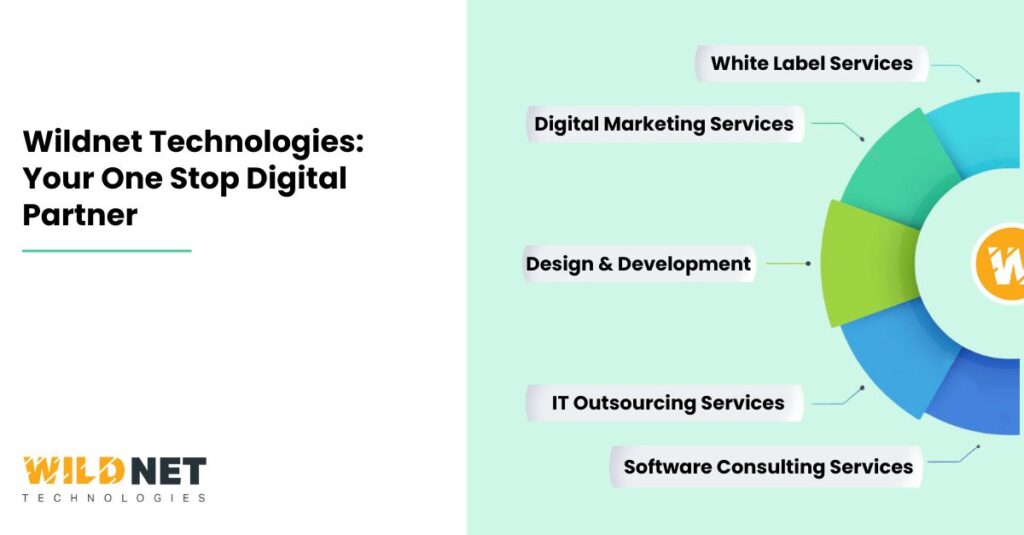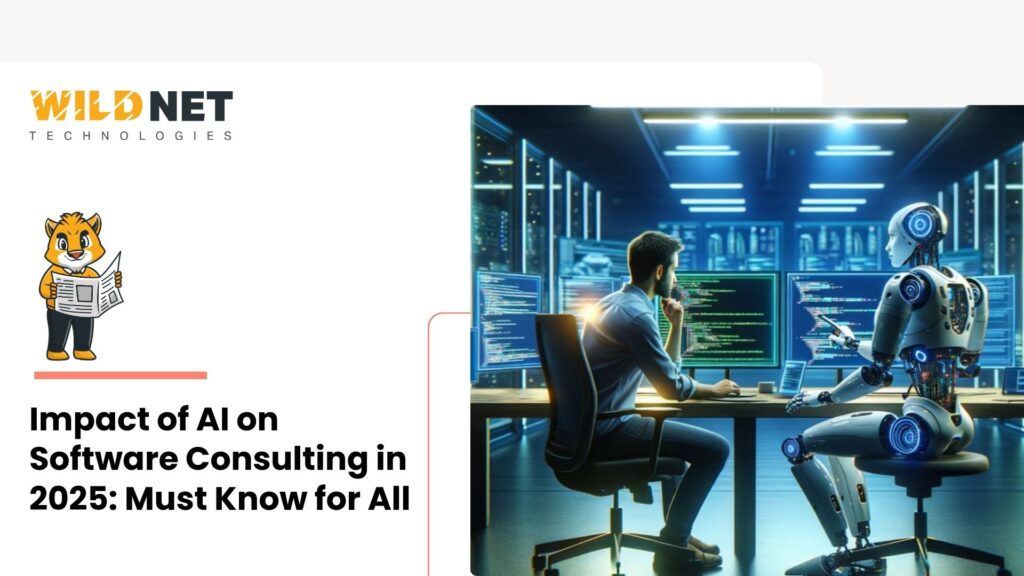Summary
We are not here to advocate for AI; Wildnet is here to advocate for you.
Be it a brand, a marketing agency, or an individual creator (influencer), you all impact the way the digital world works. If some of you choose AI and some don’t, we will all just be chasing our own tails.
However, with an AI marketing upgrade, the whole generation will experience the next digital revolution. Without it, your brand will keep losing customers like leaves in fall…
Key Takeaways
- AI marketing trends in 2026 are centred around hyper-personalization, predictive insights, and automation.
- Generative AI will redefine content creation and customer experience.
- Ethical AI, data governance, and human oversight remain essential for long-term brand trust.
- Marketers must adapt to Generative Engine Optimization (GEO) — optimizing content for AI-driven search engines.
- Success will depend on integrating AI tools, understanding data, and embracing continuous learning.
Table of Contents
- A few facts about AI Marketing
- The Rise of Intelligent Marketing Systems
- What are the Generative AI Marketing Trends that will Shape 2026?
- How to align your Brand / Client with AI Marketing Trends 2026?
- 9 Practical Steps for a Brand to Leverage 2026 AI Marketing Trends
- How to find the right AI Marketing partner (quick vetting guide)?
- Conclusion
- FAQs
Artificial Intelligence has already transformed how we communicate, create, and connect, but 2026 is when it matures. Brands are moving beyond experimentation toward AI-driven ecosystems that automate insights, personalize outreach, and predict customer intent before it happens.
According to a 2026 forecast by a reputable digital marketing agency, companies using integrated AI systems are expected to outperform competitors by up to 35% in customer acquisition and ROI.
The message is clear: the future of marketing isn’t about more data — it’s about smarter data powered by AI.
A few facts about AI Marketing
- 69% of the marketers are excited about the inculcation of AI in marketing.

A pie chart showing the Marketer’s feelings towards AI in the workplace.
- 32% of the marketing agencies have fully implemented the AI solutions.
- Marketers in 2025 are using AI for Content & Copy creation (76%), Creative ideation (71%), Market analytics (63%) and Image generation (62%).
- As per a recent blog by Harvard, the top AI marketing automation trends 2025 are superior data analytics, hyper-personalization and Chatbots & VAs (virtual assistants).
- In 2025, the global market share of AI in marketing is expected to reach USD 47 billion, which will be USD 107 billion in 2028.
The Rise of Intelligent Marketing Systems
One of the defining AI marketing trends for 2026 is the shift from isolated automation to fully connected & intelligent marketing systems. These platforms integrate analytics, content creation, campaign optimization, and customer engagement into one continuous AI-driven loop.
Marketers leverage real-time data, sentiment analysis, and generative algorithms to make smarter decisions faster. The goal is not to replace humans but to enhance creative intuition with data-backed precision.
What are the Generative AI Marketing Trends that will Shape 2026?
Among all developments, generative AI marketing trends are at the forefront. AI is now co-creating with marketers from text and image generation to campaign storytelling.
According to Bernard Marr, 2026 will see an explosion of AI copilots for creative workflows — producing personalized ads, predictive copy, and contextual visuals in seconds. Generative AI doesn’t just save time; it opens creative freedom by enabling brands to test more ideas, faster.
In the latest Generative AI Marketing Trends Report,
- 72% of marketers reported using AI to create campaign assets, with
- 61% citing measurable ROI growth.
By 2026, this adoption will reach over 85%, signalling a complete creative transformation.
What Are the Latest Trends in AI for Marketing?
When we ask “what are the latest trends in AI marketing?”, five stand out:
- Generative Engine Optimization (GEO): Optimizing content for AI-powered search engines.
- Conversational AI: Smart & human-like chatbots delivering personalized sales journeys.
- Agentic AI: Self-operating marketing agents capable of campaign management.
- Predictive Personalization: Real-time customization driven by deep learning models.
- Ethical AI Governance: Ensuring compliance, fairness, and brand safety.
Each trend aligns with the broader vision — AI as a growth multiplier, not just a tool.
Which AI Tools Can Predict Marketing Trends?
Predictive intelligence has evolved into one of the most powerful AI marketing trends. Tools like HubSpot AI, ChatGPT Enterprise, Google Vertex AI, and Adobe Firefly Analytics are helping marketers forecast engagement, content virality, and even customer churn.
These systems learn from historical performance and user behaviour to predict which campaigns will succeed. In 2026, predictive AI will anticipate demand and automatically suggest the best next actions, taking marketing strategy to the next level.
How to align your Brand / Client with AI Marketing Trends 2026?
Below is a compact & actionable roadmap you can use immediately. It’s designed for brands and agencies that want to move from curiosity to capability — and shows why having an experienced AI marketing partner matter.
Why does an AI Marketing partner matter?
Let’s start with the significance of an AI marketing partner, whether you are a brand or a marketing agency.
Speed to Value
They cut months off experimentation by bringing proven tools, playbooks and data pipelines.
Risk Reduction
An AI Marketing agency implements governance, bias checks, and compliance so AI won’t harm your brand.
Integrated Execution
With an AI marketing partner, you get 360-degree AI insights covering creative, paid media, CRM and sales — preventing siloed pilots.
Talent Leverage
They bring AI and marketing SMEs so your team focuses on strategy, not engineering.
9 Practical Steps for a Brand to Leverage 2026 AI Marketing Trends
We know nine steps can sound like a tiresome process, but believe us, the light at the end of this tunnel will be worth all the effort in terms of ROI.

The AI Marketing Implementation Funnel
Phase 1 — Diagnose
- Clarify Business Goals
Define 2–3 measurable goals (e.g., reduce CAC by 15%, increase qualified leads by 25%, or raise repeat revenue by 10%). Tie each to a timeframe.
- Audit Data & Systems
Inventory first-party data (CRM, website, product & campaign data), tag gaps, and note access/privacy constraints. Great AI needs clean & permissioned data.
Phase 2 — Strategy
- Map AI Use-cases to Goals
Prioritize 3 use-cases that move the needle (e.g., predictive LTV scoring, dynamic creative personalization & conversational sales assistant)—score by impact vs. effort.
- Define Success Metrics
For each use-case set KPIs (e.g., CTR uplift, conversion lift & reduced time-to-lead). Decide baseline measurements and test window.
Phase 3 — Foundation
- Build the Data Foundation
Clean, unify, and stream first-party data to a single workspace (CDP/data warehouse). Ensure PII handling, consent, and retention policies are clear.
- Select Toolstack & Architecture
Pick pragmatic tech: a prediction/ML engine, a generative content layer, DCO (dynamic creative optimization) and a conversational platform. Favour interoperability and APIs.
Phase 4 — Pilot & Learn
- Run a Fast Pilot
Launch one high-priority use case with guardrails (human-in-loop and bias checks). Use A/B or holdout tests and measure against baselines.
- Operationalize Learnings
If the pilot wins, standardize the workflow (templates, prompts & model settings) and automate routine parts while ensuring human approval for brand-sensitive assets.
Phase 5 — Scale & Govern
- Scale with Governance
Expand to other channels/use-cases. Implement continuous monitoring (performance, ethical checks & hallucination filters), model-versioning, and stakeholder sign-off processes.
These 9 steps, divided across 5 phases, can deliver all your marketing and business goals in 2026.
How to find the right AI Marketing partner (quick vetting guide)?
We know you must be wondering about it, so we are here with a quick guide to follow through.
- Ask for Vertical Case studies — Demand 2 examples of measurable outcomes (not just “we used AI” stories).
- Check Tech fluency — They should clearly explain pipelines, data connectors, and how they handle PII & model bias.
- Request a Pilot plan — An AI partner should propose a 60- to 90-day pilot tied to your KPIs, with success/fail criteria.
- Evaluate Team mix — Look for a balance amongst the data engineers, ML/AI specialists, creative leads, and marketing strategists.
- Governance & Ethics playbook — Ensure they provide testing for fairness, hallucination controls, and change logs (model versions).
- Transparent Pricing & SLAs — Clear scopes for pilot vs. scale, and KPIs tied to payment/milestones.
If all these steps feel too much, give us a holler..
Conclusion
2026 is going to bring a new era where no one works in siloes or on stand-alone projects. Everything integrated will bring higher profits, and marketing will be the best example.
Your brand or marketing agency may have avoided AIs in 2025, stating that they are yet to be perfected. But it’s time to grow together in the coming year because AIs learn your preferences and perfect them accordingly.
In short, if you don’t use AI marketing, you will never be able to…
Wildnet Technologies is a leading digital marketing company in India that now empowers its clients via AI marketing solutions that are hyper-customized for the brands.
Wish to Read more?
> Smart Moves: 5 AI Marketing Case Studies That Justify ROI
> How did Unilever AI Marketing make a Soap Go Viral in 2025?
> Glossary (Digitally Yours)
> Digital Yum (Because Digital World is running faster than a F1 car)
Connect with us now at info[@]wildnettechnologies.com and become the Trend.
FAQs
Question 1: What Are the Key Trends in AI Marketing for 2025?
Answer 1: The key trends in AI marketing for 2025 are data consolidation, creative automation, and customer journey mapping. These pillars continue to drive 2026’s success.
AI is evolving from task-oriented support to strategic intelligence, giving marketers the power to act on insights in real time.
Question 2: What are the Trends in AI Agents for Marketing?
Answer 2: Using AIs for simple or segregated tasks is so 2025, and now the world is looking for all-in-one solutions. AI agents are the answer, and the brands that opt for them will be the next leaders for years to come.
Question 3: Is AI Marketing everything, and can brands survive without it?
Answer 3: No, AI marketing isn’t everything. Brands can survive without it, but only if they have a great marketing team and a vast marketing budget.
Question 4: How can brands prepare for AI marketing trends 2026?
Answer 4: To stay competitive, start by integrating AI into existing systems, training teams, and developing ethical data strategies.
Question 5: How can Wildnet help with AI Marketing in 2026?
Answer 5: We are one of the first companies in India to fully adopt AIs, be it in marketing or IT. We want our clients to have the best results in lesser budgets.
This does not mean we don’t provide traditional digital marketing services, but they will cost more and take more time.
So, with Wildnet by your side, the brand/marketing agency is set to soar high into the sky.







